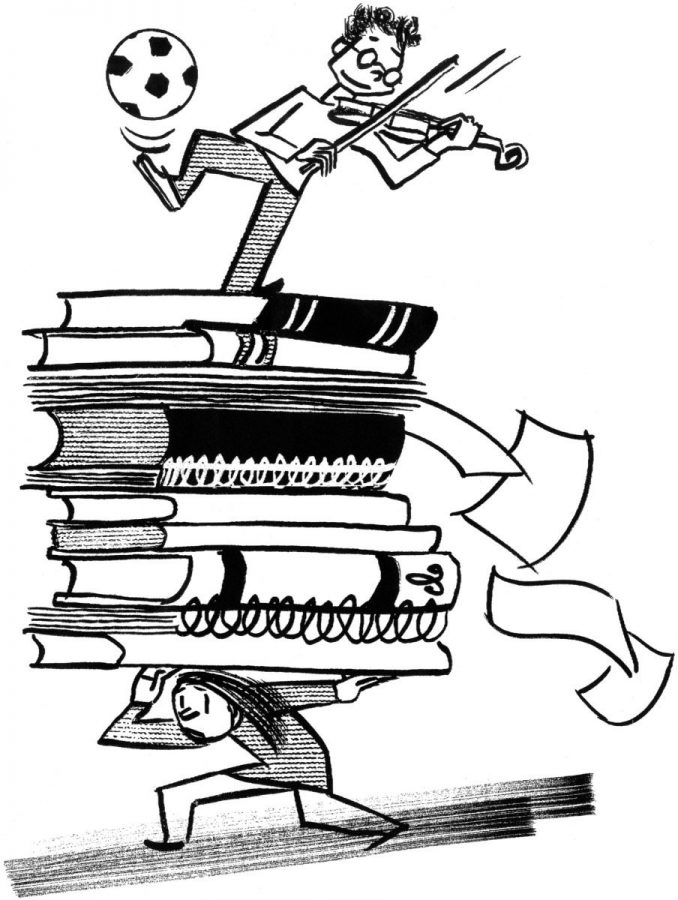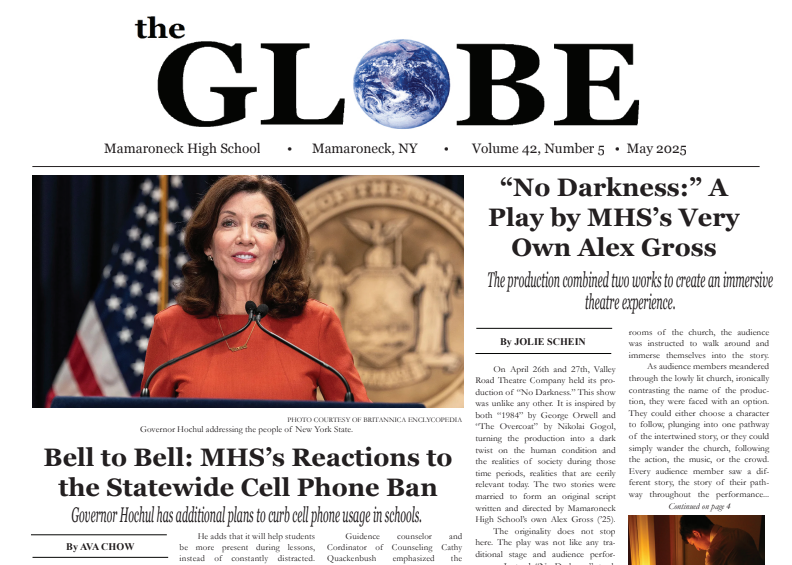Can MHS Students Reform a Toxic College Application Culture?
December 31, 2021
Every year at Mamaroneck High School, seniors are tasked with the arduous college admissions process. They have to visit colleges, contact counselors, write essays, fill out paperwork, and schedule college interviews, to name a few tasks. It is stressful for all, but our school environment is even more competitive than most high schools, worsening the college process for seniors.
Our community is affluent, with Westchester County being one of the wealthiest counties in the country, and our town being in the top ten for highest median household incomes. Because of the community’s affluence, students generally have affluent backgrounds and families, so they are expected to take advantage of it and get into a good college. These expectations come from how many people, including parents of students, in our community feel it is necessary to take advantage of the greater opportunities that come with affluence. Because of the higher expectations, the competition in our school to get into college is higher than most schools. So in addition to the stress seniors face from the large quantity of work, they also face more expectations than most students in the nation, leaving them worse off.
These aforementioned opportunities students are expected to take advantage of come in the form of many school activities, including clubs, sports, and other things. A common belief is that more activities means more to show to a college and therefore a higher chance of acceptance. Because of the expectations and the aforementioned belief, students get pressured into doing more school activities. From the very beginning of high school, students end up doing certain activities because they are told it “looks good for college” and not because they want to do them. So students give themselves more stress and work by doing school activities, all because of competition and college. And instead of being perceived as something to enjoy, the activities get a more negative view because they are one more thing associated with the college admissions process.
Social media platforms also exacerbate the school’s competitive atmosphere because they serve as an outlet for students to inform others of their success or failure regarding the college admissions process. When a student uses these platforms to show their success with the process, the many other students who see it often feel unhappy and feel more pressure to get into a good college, increasing the competition and stress. Although the Globe believes this issue is not something that can be easily fixed, it is necessary to point out that social media compounds the problem of people doing activities they don’t like because it serves as another source of stress.
The Globe staff believes that the large amount of work associated with college applications is inevitable, but also believes that the stress and competition can be reduced if students focus more on doing school activities for their own enjoyment rather than just for college. Some would argue that this will hurt their chances of getting into college. Actually, doing activities one likes will help college prospects, because when a college asks a student about why they did an activity, they can honestly say it was for their enjoyment, and since colleges also ask students their interests, these activities will supplement what the student claims they are interested in.
The stress felt by seniors regarding college admissions comes from our school’s high level of competition. The competition traces back to the affluence of the community, and this, along with social media, is inevitable. Yet, the Globe staff also believes that students can make the process less stressful if they focus more on doing extracurricular activities that they enjoy rather than doing things that may be good for college.






